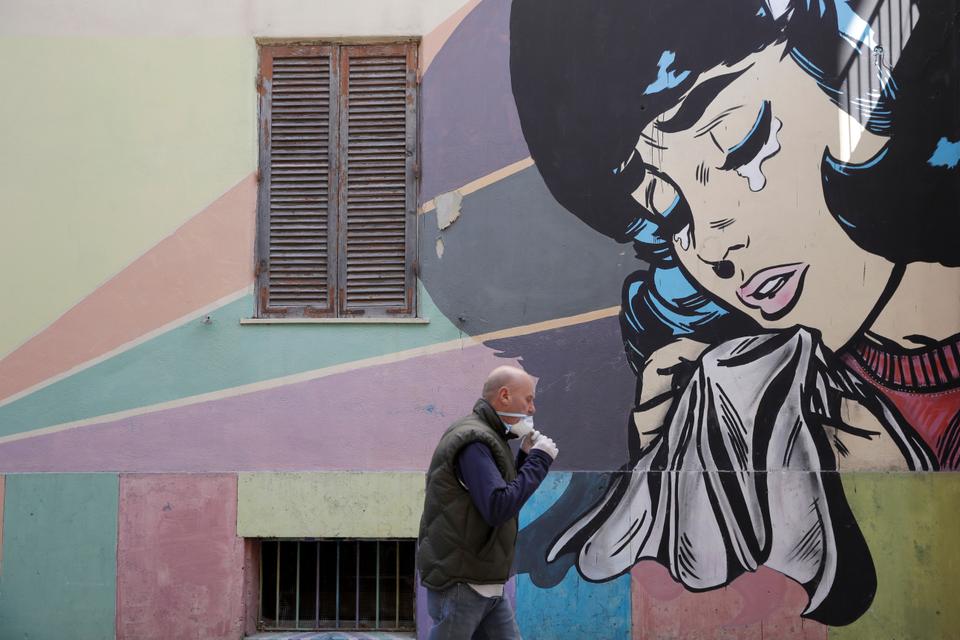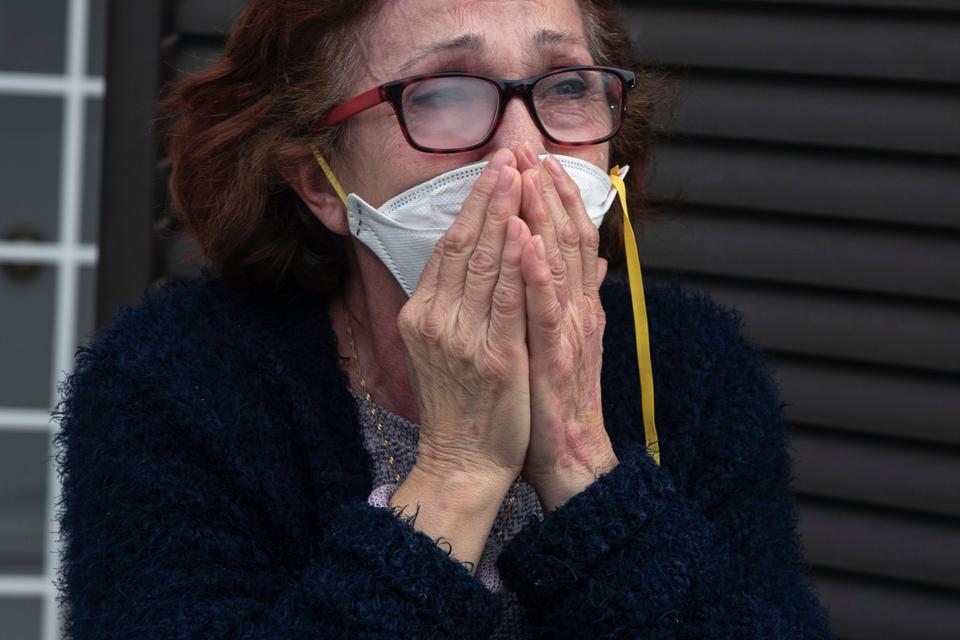From Iran to Italy to the US, the stigma of mental health, isolation and loss are snaking through communities across the globe.
Tired messages and raspy inflections, Iranian social worker, Yasmine, expressed her sadness over another long week. She explained her work is focused on comforting others, leaving little room for herself.
“My heart became so damaged [over] the patients,” she told TRT World, “Everyday I think, I [could] die.”
Yasmine said she obsesses over little things and feels anxious. “I lose sleep, I lose [my appetite] for dinner. It’s a strain for my partner.” The experience can often make her feel isolated and alone.
Iran’s response to Covid-19 was slow when the first cases were admitted in February. Officials were quick to deny its impact and then they became the third-worst outbreak after China and Italy. The government was also accused of hiding mass graves. Now, estimates, at the time of writing, suggest over 80,000 Iranians are suffering and more than 5,000 have died. And still, officials want to open up businesses in the face of the continued spread.
But the troubles in Iran aren’t unique. The stigma of mental health, isolation and loss are snaking through communities across the globe. And the lack of support for those suffering is being magnified.
Yasmine, in particular, struggles with a cortisol hormone deficiency, which can disrupt blood pressure levels and stimulate extreme mood swings under heavy stress. “When some people are angry at me and shout at me loudly, my body; it shakes. It’s an unbearable situation,” she said.
She wouldn’t trade in her work but accepting its mental challenges and managing her body becomes an important part of getting through each day.
The stay-at-home orders and other measures are highlighting mental health and loneliness almost as its own pandemic. And sociological care is desperately needed in ways not recognised on this scale.
Yasmine pointed out: “People need treatment, psychological treatment for mental [health] because the patient has coronavirus and [they] needs treatment for their mind, for social [distancing], treatment for their family and after that, the big problem is, when people die, their family needs treatment for loss.”
In northern Italy, Daniela Trezzi, a 34-year-old nurse ended her own life, just weeks ago, after being diagnosed with the coronavirus. She struggled to get through the onslaught of cases and one of her colleagues was quoted saying medical personnel felt “abandoned” and there were no “clear guidelines” to manage cases with patients who may experience “suicidal feelings”.

Italy, to date, has over 108,000 people suffering from the coronavirus, with at least 24,000 deaths. It only saw its first fall in active cases in the past few days.
Another woman, further west, and across the Atlantic Ocean, in New York City, D’Neil Schmall sobbed on a video she posted to her social media. Schmall is a volunteer nurse and the pressure weighed on her emotions after another difficult shift.
“There’s only so much anyone can take,” she said to her camera. Patients in her care are dead. Her shoulders slumped and her face showed exhaustion as she described the overwhelming difficulty. Her mind and heart were breaking and she explained she didn’t feel like she could call anyone, she didn’t feel like she could reach out to anyone for help. She felt isolated and alone. Her sobs spoke volumes: “Sometimes I just think people forget we’re human too.”
People are beginning to feel mentally confined. Isolation goes beyond the physical confinements of travel, workplace environments or “social distancing” to manage the biological spread of Covid-19. Isolation is a mental entrapment and is being felt on an internal level, revealing a serious challenge in many communities who are scrambling to provide alternative resources for those most vulnerable.
For some, isolation means staying in a home that is unsafe, especially if they are subjected to abuse. Their isolation, physically, emotionally and mentally makes navigating Covid-19 significantly harder. Finding a shelter or going to the hospital is limited.

Domestic violence cases are increasing. Social workers are scrambling to provide assistance. Reports have emerged where, for example, of a victim who was threatened if they coughed or another, attacked when they urged the abuser to maintain ‘social distancing’ and cleanliness standards.
Before Covid-19, many subjected to that abuse had ‘zones of safety’, such as their jobs or daily outings with their children. Now, that option is gone.
Journalist and Australian author, Jess Hill, who has studied domestic abuse cases extensively, explained: “It’s very difficult for victims to take that space. Part of the coercive control in their households may be that they’re being prevented from leaving at all.
“When you don’t have that zone of safety, there’s no way to come back to yourself. And the reason why isolation is such a common feature of domestic abuse, is that it stops a supportive connection outside.”
This is of importance, she explained, because outside connections challenge the “logic of the perpetrator, which has them [the abused] seeing the world through the eyes” of self-degradation.
So, isolation then becomes an easier tactic for abusers to maintain mental control over their partners or family systems. Victims then feel they have no way out, no way to get help and nowhere to go. Social workers and therapists take calls around the clock and struggle to make room in shelters while maintaining necessary precautions to stop the virus’ spread.
Experts all over the world are making it clear – isolation is its own pandemic, and needs attention. The need for community care and self-management are more necessary than ever before. Governments should be alarmed at the numbers of mental health, domestic violence and health worker breakdowns that are bursting through the seams of this crisis. There should be a greater investment and attention given to the psychological care of communities and social workers in order to improve the overall wellness. By doing so, it increases physical wellness and therefore contributes to stopping the spread of viruses such as the one presently faced.
Back in Iran and for Yasmine, she makes it a part of her daily routine to get up and maintain a yoga and meditation practice and shows gratitude for her country, her life and her people. It’s important for her survival.
But she still must take every day for itself, “Every day, I say to myself, just me…’you are a powerful girl’ …don’t give up,” she said.
The irony is, that just may be Yasmine’s most powerful message yet, not just for herself, but to the world: don’t give up, we can overcome this, there is a way out.

